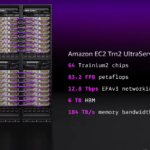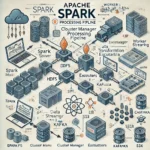The way applications are developed, deployed, and managed has been transformed over the last decade. At the heart of this transformation lies Docker, a powerful containerization platform that has redefined modern software practices. In this blog, we’ll explore the basics of Docker, its benefits, and why it has become an essential tool for developers and organizations alike.
What is Docker?
Docker is an open-source platform designed to automate the deployment of applications inside lightweight, portable containers. These containers package an application and its dependencies, ensuring that it runs consistently across different environments, whether on a developer’s local machine, a staging server, or in production.

Key Features of Docker
- Containerization: Docker containers encapsulate an application’s code, libraries, and dependencies, enabling seamless portability.
- Lightweight: Unlike traditional virtual machines, Docker containers share the host operating system’s kernel, making them faster and more resource-efficient.
- Cross-Platform Compatibility: Docker ensures applications run the same way regardless of the underlying hardware or operating system.
- Version Control: Docker images can be versioned, allowing developers to track changes and roll back to previous versions if needed.
Benefits of Using Docker
- Consistency Across Environments: Docker eliminates the “works on my machine” problem by standardizing application environments.
- Improved Developer Productivity: Developers can focus on writing code without worrying about environment-specific issues.
- Scalability: Docker makes scaling applications simple and efficient by deploying multiple containers across clusters.
- Faster Deployment: Containers start almost instantly, reducing the time required to spin up environments.
- Cost-Efficiency: Docker’s lightweight nature ensures optimal resource usage, reducing hardware and cloud costs.
Common Use Cases
- Microservices Architecture: Docker simplifies the development and deployment of microservices, where each service runs in its container.
- Continuous Integration and Deployment (CI/CD): Docker integrates seamlessly with CI/CD pipelines, enabling rapid testing and deployment.
- Application Modernization: Legacy applications can be containerized, making them easier to manage and scale.
- Hybrid and Multi-Cloud Deployments: Docker ensures applications run consistently across different cloud providers and on-premise setups.
Getting Started with Docker
- Install Docker: Download and install Docker Desktop for your operating system from the official Docker website.
- Learn Basic Commands: Familiarize yourself with key Docker commands like
docker build,docker run, anddocker-compose. - Create Your First Container: Use Docker to containerize a simple application and deploy it locally.
- Explore Docker Hub: Access thousands of pre-built container images to speed up your development process.
Docker has revolutionized the way applications are built, shipped, and deployed. Its ability to deliver consistent, portable, and scalable solutions has made it a cornerstone of modern software development practices. Whether you’re a developer, system administrator, or part of an operations team, understanding Docker is a valuable skill in today’s tech landscape.
Are you ready to embrace Docker and take your application deployment to the next level? Start exploring today and unlock the full potential of containerization!


